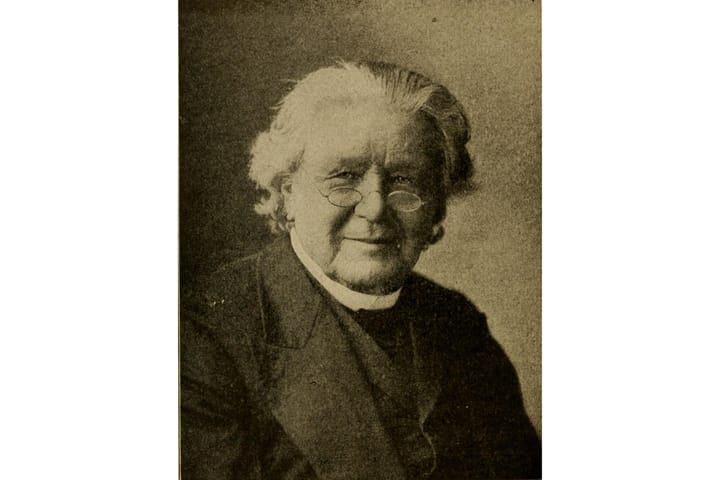Balanced Bites: You probably don’t get enough fiber — here’s why that matters
Plenty of food groups including vegetables, beans, fruits, nuts and seeds have fiber, but the vast majority of U.S. adults don't get enough in their daily diets.

Did you know that less than 5% of adults in the U.S. meet their daily fiber needs? And no, it’s not just about regular bathroom trips. Fiber is an unsung hero of your diet, offering benefits that go far beyond digestion.
If you’re among the 95% falling short, keep reading!
What is fiber and where do you get it?
Fiber isn’t just about beans or prunes. It’s a carbohydrate found in plant-based foods, and it’s unique because your body doesn’t actually digest or absorb it. Instead, fiber passes through the digestive system largely intact, playing key roles in overall health.
Including a variety of beans, fruits, vegetables, whole grains, nuts and seeds is a great way to get both types of fiber in your diet.
The benefits of fiber go way beyond digestion
It’s time to think bigger when it comes to fiber. Yes, it’s great for keeping things moving in your digestive system, but its benefits extend to various corners of your health — and even your mind!
1. Fiber reduces the risk of chronic diseases
Fiber has been linked to a lower risk of heart disease, type 2 diabetes and certain cancers, including colorectal cancer. The soluble fiber in oats and flaxseed, for example, helps lower “bad” cholesterol, while overall high-fiber diets may reduce inflammation and promote a healthier gut microbiome.
It’s even been shown that fiber may help prevent conditions like irritable bowel syndrome and diverticulitis.
2. Fiber supports weight management
Looking to maintain or shed a few pounds? High-fiber foods are a fantastic ally. They’re filling, slow down digestion and keep you satiated for longer.
3. Fiber may lower the risk of anxiety
Yes, you read that right. Emerging studies suggest that dietary fiber may have mental health benefits. Its effect on the gut microbiome — often referred to as the “second brain” — can influence neurotransmitter production and mood. For instance, a study found that participants with higher fiber intakes had a 33% lower risk of anxiety and psychological distress compared to those with a lower intake.
What about fiber supplements?
If you’ve considered reaching for a fiber supplement to solve the problem, you’re not alone. While supplements can help, they’re not the full solution. Fiber-rich fruits, vegetables, legumes and whole grains come packed with essential vitamins, minerals and antioxidants that supplements don’t have.
- Supplements have their place. They’re useful for helping to close the fiber gap, but they’re not a replacement for a diet rich in fiber from natural sources.
Women under 50 need 25 grams of fiber per day, while men under 50 need an average of 38 grams per day. Women and men over 50 should get 21 and 30 grams of fiber respectively. Yet the average American only eats about 15 grams daily. And this is where expert support comes in.
A registered dietitian can help make fiber fit your unique life
Boosting your fiber intake isn’t as simple as adding a bowl of oatmeal or tossing some lentils into a soup (though both are excellent ideas!). You need a personalized approach that fits your lifestyle, preferences and needs.
A dietitian can help by:
- Customizing a meal plan with fiber-rich foods that you’ll actually look forward to eating.
- Helping you identify fiber-filled options at restaurants or on the go.
- Guiding you through room for more plant-based foods without sacrificing flexibility or satisfaction.
Fiber doesn’t have to be synonymous with bland meals or overwhelming grocery lists.
I never recommend trying to overhaul your whole diet overnight; it isn’t sustainable! Gradual changes are key. Increasing fiber too quickly can lead to gas, bloating and even worse constipation — not good! Instead, ease into your higher fiber choices and drink plenty of water to keep things moving smoothly.
Whether you’re looking to boost your digestion, lower your disease risk, or improve your mood, fiber is one of the simplest yet most impactful changes you can make to your diet.
If you’re ready to make lasting changes but don’t know where to start, reach out to a registered dietitian or nutrition expert. Professional guidance can take the guesswork out of eating better and help you find an approach that works seamlessly with your life.
Holly Larson, MS, RD is a local registered dietitian who specializes in women’s health and diabetes management. To learn more, visit hollylarsonnutrition.com - your visit may be fully covered by your insurance plan.




